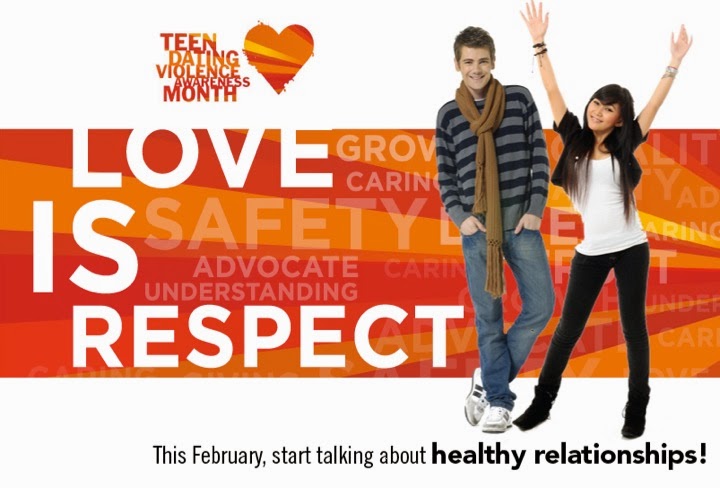Teen Dating Violence: Knowing If Your Teen is in Trouble
February is Teen Dating Violence Awareness Month.
Although many parents and teens never believe that dating abuse will happen to them, they believe they are immune to such behavior, they couldn't be more wrong.
Domestic violence doesn't discriminate.
Parents, what you need to know if you suspect your child is in a bad relationship:
You can look for some early warning signs of abuse that can help you identify if your child is in an abusive relationship before it’s too late. Some of these signs include:
It’s never too early to talk to your child about healthy relationships and dating violence. Starting conversations -- even if you don’t think your child is dating -- is one of the most important steps you can take to help prevent dating violence. Here are some sample questions to start the conversation:
Although many parents and teens never believe that dating abuse will happen to them, they believe they are immune to such behavior, they couldn't be more wrong.
Domestic violence doesn't discriminate.
Parents, what you need to know if you suspect your child is in a bad relationship:
You can look for some early warning signs of abuse that can help you identify if your child is in an abusive relationship before it’s too late. Some of these signs include:
- Your child’s partner is extremely jealous or possessive.
- You notice unexplained marks or bruises.
- Your child’s partner emails or texts excessively.
- You notice that your son or daughter is depressed or anxious.
- Your son or daughter stops participating in extracurricular activities or other interests.
- Your child stops spending time with other friends and family.
- Your child’s partner abuses other people or animals.
- Your child begins to dress differently.
- Tell your child you’re concerned for their safety. Point out that what's happening isn't "normal." Everyone deserves a safe and healthy relationship. Offer to connect your son or daughter with a professional, like a counselor or attorney, who they can talk to confidentially.
- Be supportive and understanding. Stress that you’re on their side. Provide information and non-judgmental support. Let your son or daughter know that it’s not their fault and no one "deserves" to be abused. Make it clear that you don’t blame them and you respect their choices.
- Believe them and take them seriously. Your child may be reluctant to share their experiences in fear of no one believing what they say. As you validate their feelings and show your support, they can become more comfortable and trust you with more information. Be careful not to minimize your child’s situation due to age, inexperience or the length of their relationship.
- Help develop a safety plan. One of the most dangerous times in an abusive relationship is when the victim decides to leave. Be especially supportive during this time and try to connect your child to support groups or professionals that can help keep them safe.
- Remember that ultimately your child must be the one who decides to leave the relationship. There are many complex reasons why victims stay in unhealthy relationships. Your support can make a critical difference in helping your son or daughter find their own way to end their unhealthy relationship.
It’s never too early to talk to your child about healthy relationships and dating violence. Starting conversations -- even if you don’t think your child is dating -- is one of the most important steps you can take to help prevent dating violence. Here are some sample questions to start the conversation:
- Are any of your friends dating? What are their relationships like? What would you want in a partner?
- Have you witnessed unhealthy relationships or dating abuse at school? How does it make you feel? Were you scared?
- Do you know what you would do if you witnessed or experienced abuse?
- Has anyone you know posted anything bad about a friend online? What happened afterwards?
- Would it be weird if someone you were dating texted you all day to ask you what you’re doing?
- Do your own research on dating abuse to get the facts before talking to your teen or 20-something. Start with the information and resources on loveisrespect.org.
- Provide your child with examples of healthy relationships, pointing out unhealthy behavior. Use examples from your own life, television, movies or music.
- Ask questions and encourage open discussion. Make sure you listen to your son or daughter, giving them a chance to speak. Avoid analyzing, interrupting, lecturing or accusing.
- Keep it low key. Don’t push it if your child is not ready to talk. Try again another time.
- Be supportive and nonjudgmental so they know they can come to you for help if their relationship becomes unhealthy in the future.
- Admit to not knowing the answer to a particular question. This response builds trust.
- Reinforce that dating should be fun! Stress that violence is never acceptable.
- Discuss the options your child has if they witness dating abuse or experience it themselves.
- Remind your son or daughter they have the right to say no to anything they're not comfortable with or ready for. They also must respect the rights of others.
- If your child is in a relationship that feels uncomfortable, awkward or frightening, assure them they can come to you. And remember -- any decisions they make about the relationship should be their own.
- Find ways to discuss gender equality at A Call to Men.
- Contact Break the Cycle to find out if there are dating violence prevention programs in your community. If not, work with Break the Cycle to bring abuse prevention to your local school or community group.


